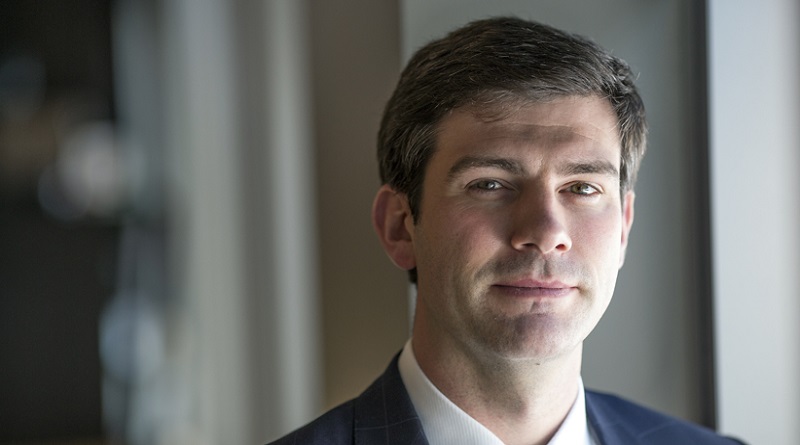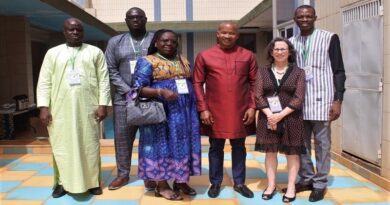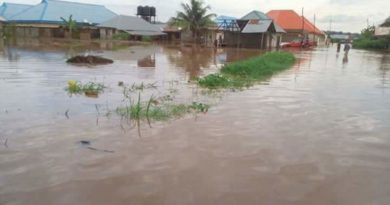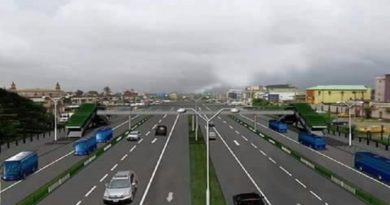Edmonton emerges host to 2018 cities, climate change science conference
In an effort to assist cities around the world to use scientific knowledge to help them understand the action options towards implementation of the Paris Agreement, New Urban Agenda and Sustainable Development Goals, the City of Edmonton, Canada, has been selected to host a unique international conference that will boost the scientific understanding of climate change and cities.
This event, the Cities and Climate Change Science Conference, co-sponsored by the IPCC, will take place in March 2018 and support the implementation of the Paris Agreement, the New Urban Agenda, and the Sustainable Development Goals. The conference has also appointed a Scientific Steering Committee, which will guide its organisation.
Edmonton, May 5 – Edmonton, the capital city of the Canadian Province of Alberta, has been selected to host the 2018 Cities and Climate Change Science Conference co-sponsored by the Intergovernmental Panel on Climate Change (IPCC). The event promises to be a pivotal milestone in developing the global understanding of how climate change will impact cities and the role of cities in tackling climate change.
Ten cities – with equal representation from the Global North and Global South –responded to an open call to host the conference launched in Marrakech at the United Nations Climate Change Conference (UNFCCC COP-22) in November 2016. The proposals were transparently and collectively assessed during a month of rigorous evaluation and intense deliberation, leading to the final selection of Edmonton as the winner, due to the very high quality of their proposal.
Don Iveson, Mayor of Edmonton, said: “The City of Edmonton is pleased to host the 2018 Cities and Climate Change Science conference. Our city is serious in its action to combat climate change. The City’s Blatchford redevelopment, poised to be one of the world’s largest sustainable communities, and our commitment to doubling of our light rail transit network in the next ten years, are just two of many initiatives we are making to further this necessary global change. Hosting the 2018 Cities and Climate Change Science conference gives us the opportunity to share knowledge with other municipalities, while learning, advancing ideas and forming partnerships that will help the world’s cities make progress on climate change.”
“Cities are on the front lines of the fight against climate change” added Shannon Phillips, the Minister Responsible for the Climate Change Office of Alberta. “As host of the 2018 Cities and Climate Change Science conference, Edmonton will showcase Alberta’s efforts to protect the environment and build a diversified economy of the future. Safeguarding our quality of life here in Alberta and around the world requires collaboration and effort from individuals to cities, provinces and national governments.”
The 2018 Cities and Climate Change Science Conference was approved by the Intergovernmental Panel on Climate Change (IPCC) in October 2016 (Decision IPCC/XLIV-6) and is supported by a diverse group of organizations identified as #CitiesIPCC – C40, Cities Alliance, ICLEI, Future Earth, SDSN, UCLG, UN-Habitat, UN Environment and WCRP.
It will bring together representatives from academia, scientific institutions, IPCC experts, national, regional and local government representatives, urban and climate change practitioners and related networks. The conference will inspire global and regional research on Cities and Climate Change over the AR6 cycle in preparation for the future IPCC Special Report on Cities and Climate Change. Its outcomes will help member states, mayors and citizens deliver on the ambition of the Paris Agreement, the New Urban Agenda and the Sustainable Development Goals.
According to Debra Roberts, Co-chair of the IPCC Working Group II, “the 2015 Paris Agreement is a universal call to climate action – but cities around the world need science to help them better understand the action options. Nowhere is this scientific knowledge more urgently required than in the cities of the Global South, where the well-being and livelihoods of billions of poor and vulnerable people depend on the implementation of climate resilient urban development pathways. This conference is key in developing a global research agenda that will establish a new contract between society and climate science in the world’s cities.”
A high level Scientific Steering Committee, with experts from the engineering, physical, natural and social sciences and humanities, as well as from the urban community, will guide the organisation of the conference.




